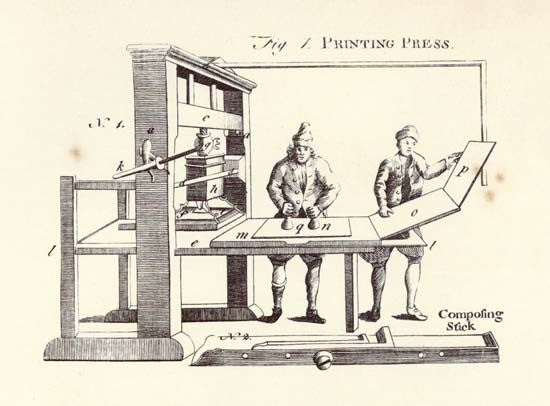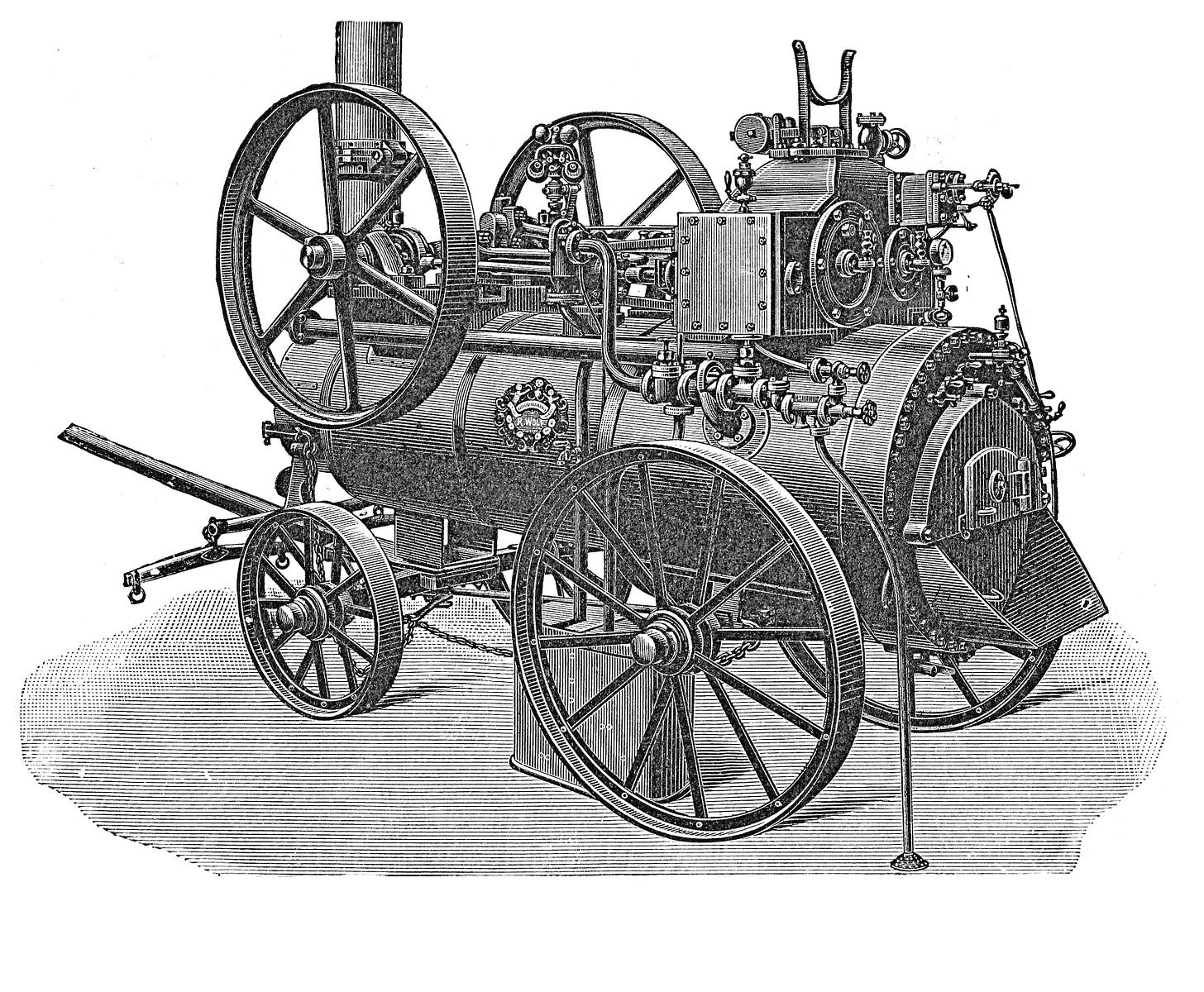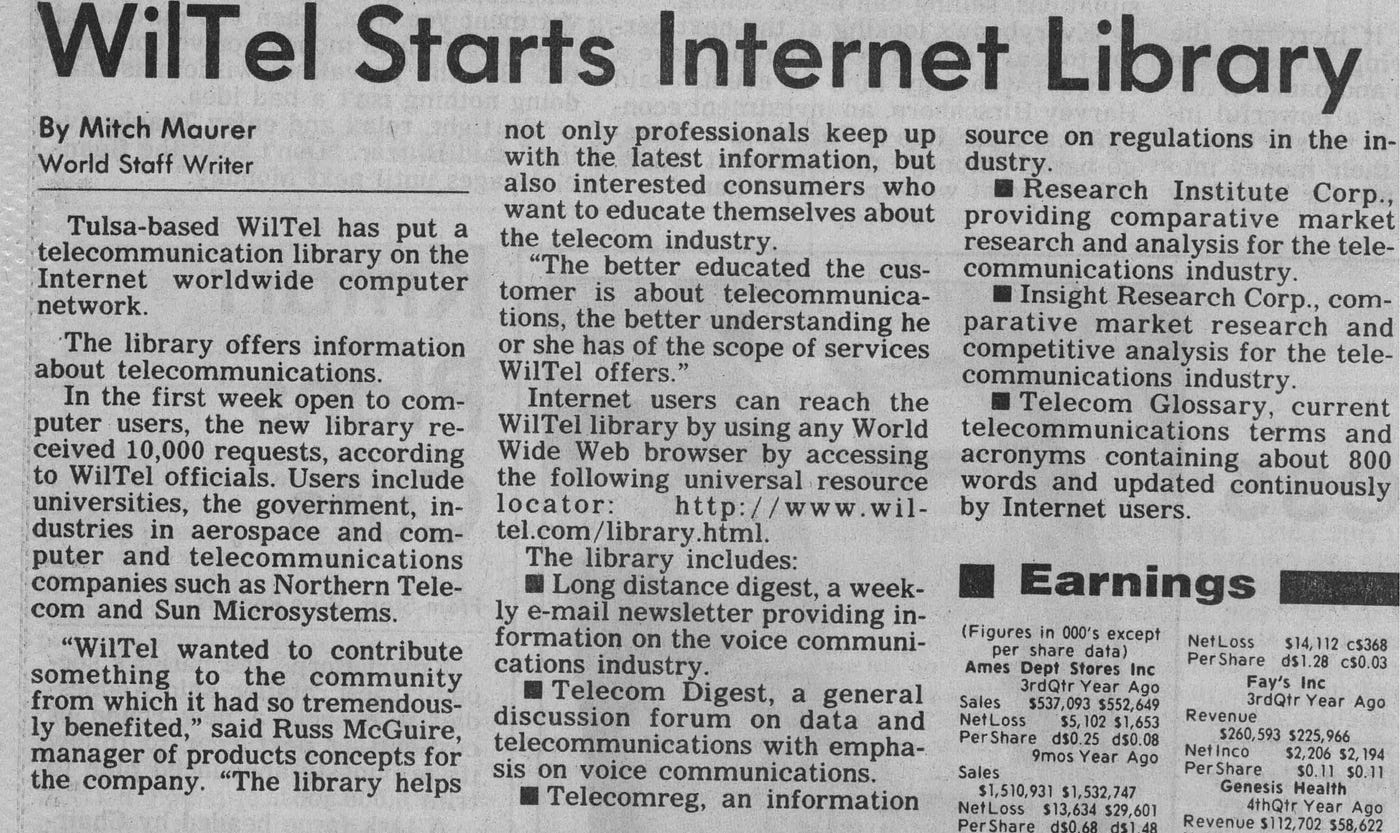Pandora's Box: What History Teaches Us About Tech Revolutions
Unpacking the unforeseen consequences of some of history’s greatest innovations
Warnings of job losses, misinformation, societal upheaval... sound familiar? These aren't just today's AI anxieties; they echo fears surrounding world-changing innovations centuries ago. With constant AI news and predictions of AGI before 2030 in Silicon Valley, we are living in a pivotal, uncertain, yet exciting time.
This makes me wonder: how did our parents feel at the dawn of the internet age? What about you? Can you recall your first encounter with the internet, or perhaps the initial excitement or skepticism about smartphones? How did our ancestors react to technologies like the printing press, steam engines, or automobiles – innovations with profound and lasting implications for society?
I’ve been thinking a lot about unintended consequences. Not in a doomscrolling kind of way, but more like: how do we stay curious and responsible when we're standing at the edge of another tech leap?
Exploring historical parallels is fascinating for me, because they could reveal recurring patterns in how we anticipate the impact of transformative technologies.
Today, let's journey back in time to unpack some of history’s greatest inventions and their unexpected consequences. We'll look at the printing press, the steam engine, the automobiles, the internet, and social media.
I) Printing Press
In the mid-1400s, Johannes Gutenberg developed a printing press using movable type (though earlier printing existed in China). His innovation allowed efficient mass production of texts, famously the Bible, replacing the slow, costly hand-copying by scribes.
While Gutenberg likely aimed to make texts accessible, the press had broader consequences. It dramatically accelerated the spread of ideas and diverse interpretations that challenged established authority. These ideas helped spark the Protestant Reformation and energized the European Renaissance.
Yet, this explosion of information wasn't universally welcomed. The sudden abundance of printed material threatened traditional gatekeepers of knowledge, with some elites, like Filippo de Strata in 1473, warning:
“This is what the printing presses do: they corrupt susceptible hearts”
Darker consequences emerged too. Rapid dissemination fueled conflicts like Thirty Years' War, and enabled the spread of harmful misinformation. A chilling example is its role in the European witch hunts during 1400s-1700s. Books like the Malleus Maleficarum ("The Hammer of Witches"), written by inquisitors Kramer and Sprenger, argued for witchcraft's evil. While the printing press certainly didn't cause the witch-hunt, it mass-produced materials feeding the paranoia in a way previously unimaginable.
The printing press, intended primarily to replicate texts faithfully, clearly demonstrates how technologies carry both immense promise and unforeseen peril. Gutenberg likely had no idea that his invention would spark revolutions and religious wars. It makes me wonder: what are we building today that might do the same in ways we can’t foresee?
II) Steam Engine
If print revolutionized information, the steam engine revolutionized power, driving the Industrial Revolution (late 18th-19th century). James Watt's 1770s improvements created an efficient, practical power source. Its goal was reliable energy anywhere, freeing factories from riversides. Steam drove looms and pumps more effectively than older methods. The potential felt limitless, captured by Erasmus Darwin’s 1791 poem envisioning steam-powered transport on land, water, and even air (which he somewhat correctly predicted):
"Soon shall thy arm, UNCONQUER'D STEAM! afar
Drag the slow barge, or drive the rapid car;
Or on wide-waving wings expanded bear
The flying-chariot through the fields of air."
But this efficiency demanded new human rhythms. Pre-industrial work often followed daylight or seasons, with flexible meals. Steam-powered factories needed constant, synchronized labor. This led to an overlooked consequence: the modern work schedule, with rigid timetables and clocking in/out. Fixed, short "lunch breaks" became necessary to keep machines running, not for workers' needs. Ever thought about how routines, like the typical 9-to-5 workday and a fixed lunch break, come from that era, designed to make factory worker efficient?
Steam's reliance on coal also caused major environmental issues, spewing soot and sulphur dioxide, creating thick smog in cities like London, infamous for its "pea soupers." Contemporary accounts and later events like the deadly 1952 Great Smog show how poor the air quality truly was.
The steam engine was designed simply to be a better engine. However, it ended up radically reshaping industry, work, time, and our environment.
III) Automobile
Henry Ford put the world on wheels in the early 20th century. His assembly line made the Model T affordable for many, not just the elite. Initial reactions were wary – cars seemed noisy, unreliable next to horses, needing non-existent roads and fuel. The likely apocryphal Ford quote captured his vision: creating a new category for personal speed and freedom.
"If I had asked people what they wanted, they would have said faster horses.”
But this new freedom had landscape-altering consequences few fully grasped at first. Car ownership meant people weren't tied to city centers or transit routes. Those who could afford it (often wealthier families) moved further out seeking space, giving rise to modern suburbs. City centers were often left behind or populated by those without cars.
Do you wonder about the income divides between cities and suburbs? The mass adoption of the automobile undeniably played a huge role in enabling that spatial and economic separation.
This shift was accelerated by massive infrastructure projects like the Federal Aid Highway Act of 1956 in the US, whose Interstate Highway System made commuting longer distances feasible. Consequently, retail often followed people out of downtowns towards new car-centric shopping malls surrounded by vast parking lots (later led to proliferation of Walmart), further shaping suburban lifestyles.
The car's impact extended globally via its reliance on oil. Securing vast oil reserves became a key strategic goal for nations. Powering billions of cars created insatiable demand, fostering dependence on oil regions and reshaping international relations. Control over oil influenced alliances, foreign policy, economies, and fueled geopolitical tensions and conflicts throughout the 20th century and beyond. Historical examples are stark: consider the US oil embargo against Japan in 1941, aimed at curbing its expansionism, which critically crippled Japan's war machine and was a key factor leading to the attack on Pearl Harbor. Who controlled the oil often held significant sway in global power dynamics.
So the automobile, intended primarily to grant personal freedom and speed, ended up profoundly re-engineering our communities, international politics, and of course our planet's environment in ways Henry Ford likely never fully envisioned.
IV. The Internet
Emerging from government research projects like ARPANET in the late 20th century, the public internet promised a revolutionary change: the democratization of knowledge. Early proponents envisioned empowered individuals with instant access to information, fostering global understanding. As John Perry Barlow declared in his 1996 Declaration of the Independence of Cyberspace:
“We are creating a world that all may enter without privilege or prejudice accorded by race, economic power, military force, or station of birth.”
His words echoed the internet’s early ethos: a borderless, egalitarian digital frontier.
But as the internet became a global commercial platform, very different consequences surfaced. Information abundance came with rampant misinformation and disinformation, spreading faster than ever. Instead of a unified global village, the internet fueled social fragmentation. Algorithmic curation trapped users in "echo chambers", reinforcing biases and hindering dialogue. Monetizing the "free" internet also led to surveillance capitalism – harvesting vast user data to target ads and influence consumer behavior, creating profound privacy challenges rarely foreseen.
The internet, intended to liberate information, offered unprecedented access but also new mediums for manipulation, social division, and commercial exploitation.
V. Social Media
Built on the internet, social media (mid-2000s) promised connection – helping users find friends, share updates, and maintain relationships online. The goal was often "making the world more open and connected." As Mark Zuckerberg put it in Facebook’s early mission statement:
“Facebook was not originally created to be a company. It was built to accomplish a social mission - to make the world more open and connected.”
Users embraced platforms, finding new ways to interact, build communities, and express themselves.
However, as social media became ubiquitous via smartphones, different consequences emerged, especially for younger generations. Aiming to connect, these platforms often inadvertently fostered anxiety, depression, and poor mental health. As psychologist Jonathan Haidt explores in his book The Anxious Generation, the period coinciding with widespread smartphone and social media adoption saw sharp increases in adolescent mental health issues. Mechanisms include constant social comparison, curated perfection causing inadequacy, FOMO, cyberbullying, and displacement of real-world interaction and sleep.
Moreover, the algorithmic nature of social media feeds, optimized for engagement (time on site), often amplified the polarization seen on the wider internet. Sensational, emotional, or divisive content frequently gets prioritized, further contributing to societal fragmentation rather than genuine connection.
Social media aimed to bring people together online. But its evolution has had profound and often negative impacts on individual well-being, particularly for young people. It has complicated, rather than enhanced, our social fabric.
What History Teaches Us (And What it Means for AI)
From print reshaping knowledge to steam dictating schedules, to the internet and social media rewiring connections – history shows a pattern. Great inventions invariably change the world, but often in ways creators never intended. The most profound impacts are often the second- and third-order consequences, reshaping norms, routines, politics, and lives.
Now, we arrive at our current potentially transformative era: the age of Artificial Intelligence. Once again, we hear predictions of superintelligence and revolutionary breakthroughs, echoing the boundless optimism once expressed for steam power or the early internet. AI undoubtedly promises incredible advancements – boosting productivity, tackling complex problems, and even accelerating scientific discovery.
Yet, the historical pattern of unintended consequences urges caution alongside optimism. It lends weight to calls for careful consideration before rushing ahead, such as the warning from the Future of Life Institute's influential 2023 open letter, signed by numerous tech leaders and researchers:
“Powerful AI systems should be developed only once we are confident that their effects will be positive and their risks will be manageable.”
Pandora’s box, once opened, couldn’t be closed. But hope remained.
Maybe the lesson isn’t to avoid opening the box, but to be ready for what comes out, and to ask better questions before we build the next one.
So, what kinds of questions does history prompt us to ask about AI, urging that caution alongside optimism?
Consider our relationship with time and work. We saw how the steam engine locked societies into rigid schedules optimized for factories. Could AI agents, designed to complete tasks, ironically free us to work more flexibly, perhaps returning us to rhythms unseen since before the Industrial Revolution's fixed lunch breaks? Or might they impose new, subtle forms of algorithm-driven scheduling we can't yet easily perceive?
Think about information and bias. Technologies like the printing press and the internet inadvertently amplified certain voices and could spread bias rapidly. As AI helps curate information and potentially guides our choices, how might it inadvertently shape our decisions or perspectives in new, biased ways? And as we increasingly receive direct AI-generated answers instead of navigating diverse sources, how can we maintain critical thinking and awareness of what might be missing, filtered, or assumed?
And perhaps most fundamentally, consider human connection. Past technologies have always reshaped our relationships. How will these bonds evolve with the emergence of sophisticated AI companions? Will they genuinely supplement human connection and alleviate loneliness, or could they inadvertently lead to new forms of social withdrawal?
These are just some of the profound questions arising as AI develops. Like the innovations before it, AI's true, lasting impact likely lies far beyond our current predictions and hype cycles. And given AI's unprecedented pace, we likely won't have the luxury of decades to adapt – its consequences, intended or otherwise, may arrive much faster this time around.
History teaches us that unintended consequences are almost inevitable. What will they be for AI? I guess only time will tell.






Hey Phoebe I love this article a lot as a technology / history fan. Growing up as a Gen Z, technology always felt really intuitive to me. I’m curious if you were to make some predictions, what are some of the potential negative consequences of the arrival of AI agents, or AGI, that people don’t talk about today? Although no one can really predict the future, but I’m curious about your thoughts.